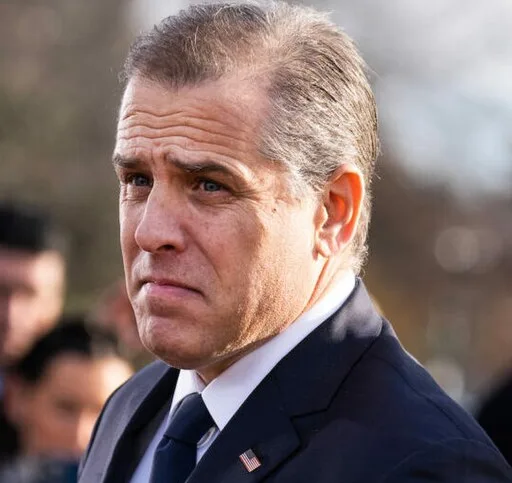Press Secretary Karine Jean-Pierre emphasizes family support but offers no firm stance on potential commutation for President Biden’s son
The White House has refrained from ruling out the possibility of President Joe Biden commuting any criminal sentence for his son, Hunter Biden, following his recent federal gun conviction. When questioned about a potential commutation, White House Press Secretary Karine Jean-Pierre stated that she had no additional information beyond what President Biden had previously expressed regarding the case.
Hunter Biden was convicted by a Delaware jury on Tuesday for lying about his drug use when purchasing a revolver in 2018. Despite the conviction, Jean-Pierre pointed to President Biden’s earlier commitment not to pardon his son, as stated in an interview last week. She emphasized that she had not discussed the matter of commutation with the president.
US presidents have the authority to commute sentences for federal offences, which involves reducing the severity of the sentence while keeping the conviction intact. They also possess the power to pardon federal convictions, which completely vacates the charges. However, these powers do not extend to state-level cases.
While aboard Air Force One on Wednesday, Jean-Pierre reiterated the president’s and first lady’s unwavering support for their son, Hunter. She did not provide details about President Biden’s unexpected trip to Wilmington, Delaware, following the jury’s verdict, nor did she elaborate on their family discussions that evening.
Jean-Pierre’s remarks indicate a potential shift from her previous stance in September, when she clearly stated that President Biden would not pardon or commute his son’s sentence if convicted. In contrast, her recent comments suggest a less definitive position.
Flying to Italy for the G7 summit, Jean-Pierre read a prior statement from President Biden in which he pledged to “accept the outcome of this case and… respect the judicial process.” Hunter Biden, 54, pleaded not guilty to charges related to lying about his drug use on a federal background check and possessing a gun while addicted to or using drugs. He faces up to 25 years in prison, though legal experts believe such a lengthy sentence is improbable.
The debate over a president’s power to pardon himself remains unsettled among constitutional scholars. This question may become more pertinent if former President Donald Trump, currently facing two federal criminal cases, were to win the presidency again and seek to test the limits of presidential pardon power.
Analysis:
Political: The possibility of President Biden commuting his son’s sentence presents significant political ramifications. It raises questions about the use of presidential powers and the ethical considerations of such a decision. The opposition might perceive any commutation as an abuse of power, potentially leading to political fallout and debates about nepotism and impartiality in the judicial process.
Social: Hunter Biden’s case brings to light issues of addiction, recovery, and the legal system’s handling of such matters. His struggle with addiction resonates with many Americans who have faced similar challenges, and the case highlights the broader societal issue of substance abuse and its legal consequences. The public’s reaction to any potential commutation will likely reflect broader attitudes toward addiction and justice.
Racial: The handling of Hunter Biden’s case and the potential for commutation could be viewed through the lens of racial disparities in the criminal justice system. Critics may argue that leniency in this high-profile case contrasts sharply with harsher penalties often faced by individuals from marginalized communities. This discrepancy could fuel ongoing discussions about racial inequality and the need for reform in the justice system.
Gender: While the case itself does not directly pertain to gender issues, the broader context of legal fairness and the use of presidential powers are relevant to gender equality. Ensuring that justice is administered impartially, regardless of personal connections, supports the principles of fairness and equity that benefit all individuals, regardless of gender.
Economical: The potential commutation of Hunter Biden’s sentence may not have direct economic implications. However, the stability of the political and judicial systems is crucial for economic confidence and investor trust. Any perceived misuse of presidential powers could impact the political climate, indirectly affecting economic stability and market perceptions
